The Israel-Hamas war is pushing Gaza towards famine, the United Nations warned ahead of an expected Security Council vote Friday on a resolution to boost aid to the Palestinian territory but not call for a ceasefire.
At the few hospitals in Gaza still functioning, more wounded arrived after renewed Israeli strikes.
In the Gaza City district of Jabalia, a strike on a house killed 16 people and wounded more than 50, the health ministry in Hamas-run Gaza said.
Northern Gaza no longer has any functioning hospitals, and only nine of the territory's original 36 hospitals are still partly functioning, the World Health Organization has said.
Four members of one family, including a girl, died in a strike on a civilian vehicle in Rafah, southern Gaza, the health ministry said.
In video shot by AFP, the vehicle looked like it had been pounded by a giant hammer that splayed its roof, leaving the wreckage blackened and blood-stained.
"The Jeep was hit. Five minutes later people gathered and a second attack took place. Two strikes on the same Jeep," said Hamada Abu Taha, a witness.
With aid workers running out of words to describe conditions in Gaza, the UN Security Council has been locked all week in negotiations over how to phrase a resolution about the war.
The latest draft seen by AFP calls for "urgent steps to immediately allow safe and unhindered humanitarian access, and also for creating the conditions for a sustainable cessation of hostilities."
It does not call for an immediate end to fighting.
Backed by its ally the United States, Israel has opposed any reference to a "ceasefire".
Linda Thomas-Greenfield, US ambassador to the UN, told reporters that Washington would support the resolution if it "is put forward as is".
Israel's relentless bombardment of targets in Gaza, alongside a ground invasion, has killed 20,057 people, according to the latest toll released Friday by Hamas authorities who have ruled Gaza since 2007.
Most of the dead are women and children, Hamas officials say.
The entire population of Gaza faces "an imminent risk of famine", according to a UN-backed global hunger monitoring system on Thursday.
The UN estimates 1.9 million Gazans are now displaced, out of a population of 2.4 million.
With homes destroyed, they are living in crowded shelters and struggling to find food, fuel, water and medical supplies. Diseases are spreading, and communications have been repeatedly cut.
According to the UN, the number of aid trucks entering Gaza is well below the daily pre-war average.
Israeli President Isaac Herzog on Thursday said Israel could enable as many as "400 trucks a day" of aid and blamed the UN for failing to bring more.
In north Gaza, parts of Gaza City including Shujaiya have seen street-by-street combat -- even building-by-building -- between Israeli soldiers and Hamas fighters.
According to the military, the deaths of two more soldiers in Gaza brought to 139 the number killed since it began its ground assault on October 27.
The area around the city of Khan Yunis in southern Gaza has been a focus of Israeli military operations which "intensified" over the past week, a military spokesperson said.
An evacuation order issued Friday by the military told residents in the area of Bureij, an existing refugee camp in central Gaza, to move further south to Deir al-Balah city.
Many Gazans have fled as far south as they can, to Rafah, yet even there they have not found safety.
"These are the houses of peaceful people," Shehda al-Kurd, a bespectacled man, said after his family's house "collapsed over us" during a pre-dawn strike.
"This area might have been considered the safest one, but they struck it," he said.
A separate strike hit an area of greenhouses in Rafah.
Wael Azad, a Palestinian farmer, said "even the animals have died."
"May God have mercy on the people," he added, wrapped in a scarf and woollen cap against the cold.
Paula Gaviria Betancur, the UN special rapporteur on the human rights of internally displaced persons, said in a statement that "Israel's military operation in Gaza aims to deport the majority of the civilian population en masse."
The UN-appointed independent expert said that with Gaza's infrastructure "razed to the ground" any realistic prospects for displaced Palestinians to return home are frustrated.
Responding to similar suggestions earlier in the war, an Israeli defence ministry spokesperson said there was "never... an Israeli plan to move the residents of Gaza to Egypt."
Israel has been under increasing pressure from allies to protect civilians.
Qatar, backed by Egypt and the United States, last month helped broker a week-long truce that saw 105 hostages released, including 80 Israelis in exchange for 240 Palestinian prisoners.
Israeli authorities say 129 hostages are still held in Gaza.
Several others have died. On Friday a group representing hostage families announced that Gad Haggai, 73, was among the fatalities. His kibbutz community and the army also confirmed his death.
A flautist, Haggai was abducted on October 7 along with his wife who remains captive.
The head of Hamas visited Egypt this week, and talks took place in Europe, regarding a possible new deal. But the stated positions of Israel and Hamas remain far apart.
The war has also sparked fears of wider conflict with regular exchanges of fire across the Lebanon border, and missiles from Iran-backed Yemeni rebels which have disrupted Red Sea shipping.
The Pentagon said on Thursday that more than 20 countries have joined a US-led coalition to protect shipping in the waterway vital for world trade.
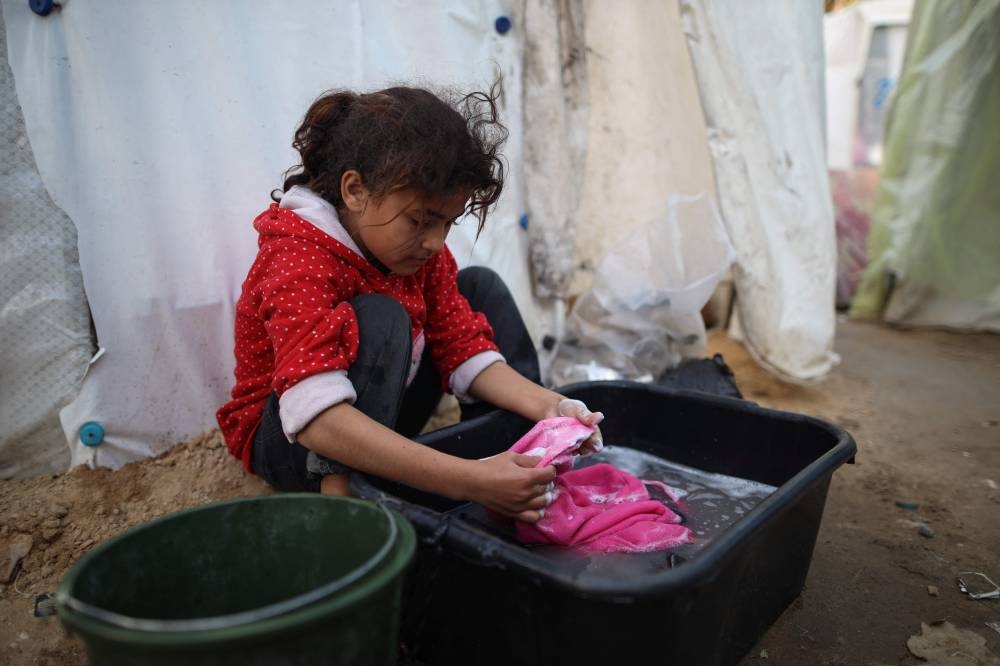
A displaced Palestinian girl hand-washes clothes in a tub near tent shelters around a hospital in Deir al-Balah in the central Gaza Strip following Israeli bombardment, on Friday. AFP
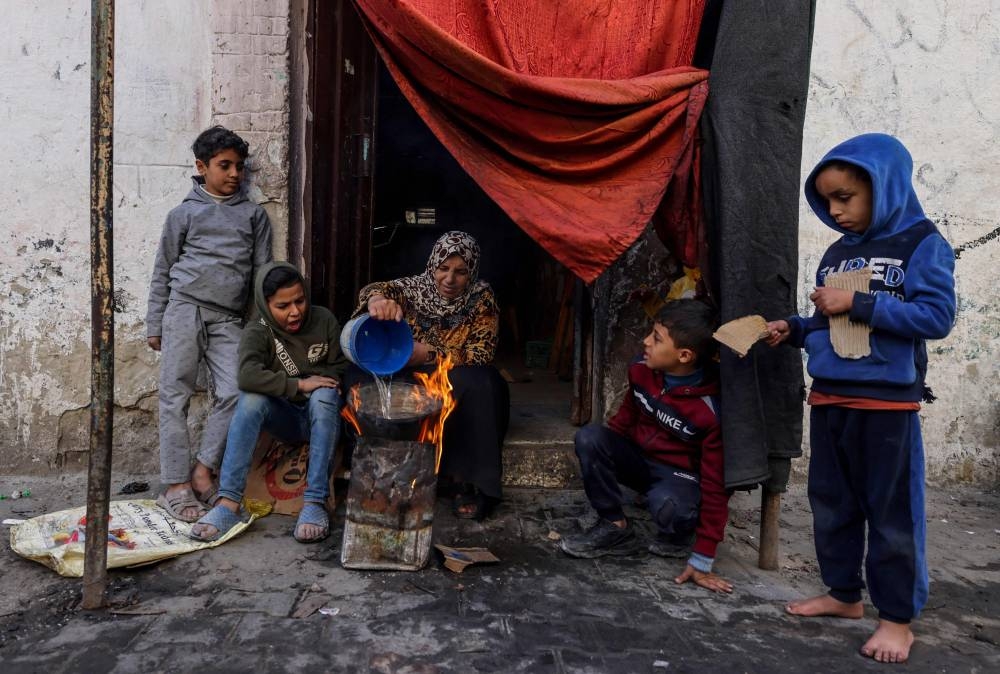
A Palestinian woman makes food outside a house in the southern Gaza Strip, on Friday. AFP
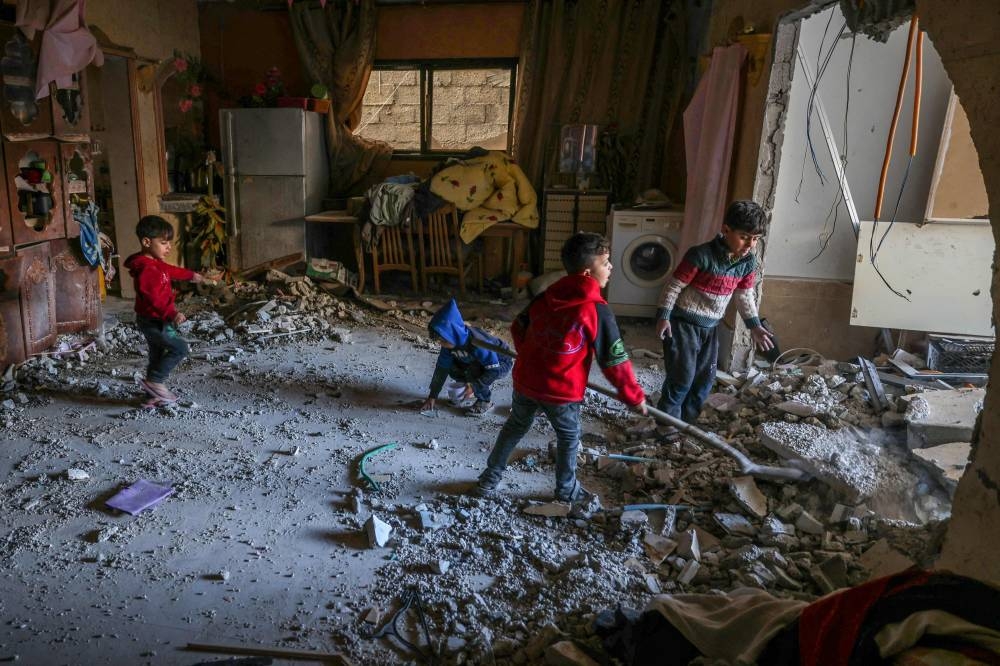
Palestinian children collect small pieces of debris following Israeli bombardment in Rafah in the southern Gaza Strip, on Friday. AFP
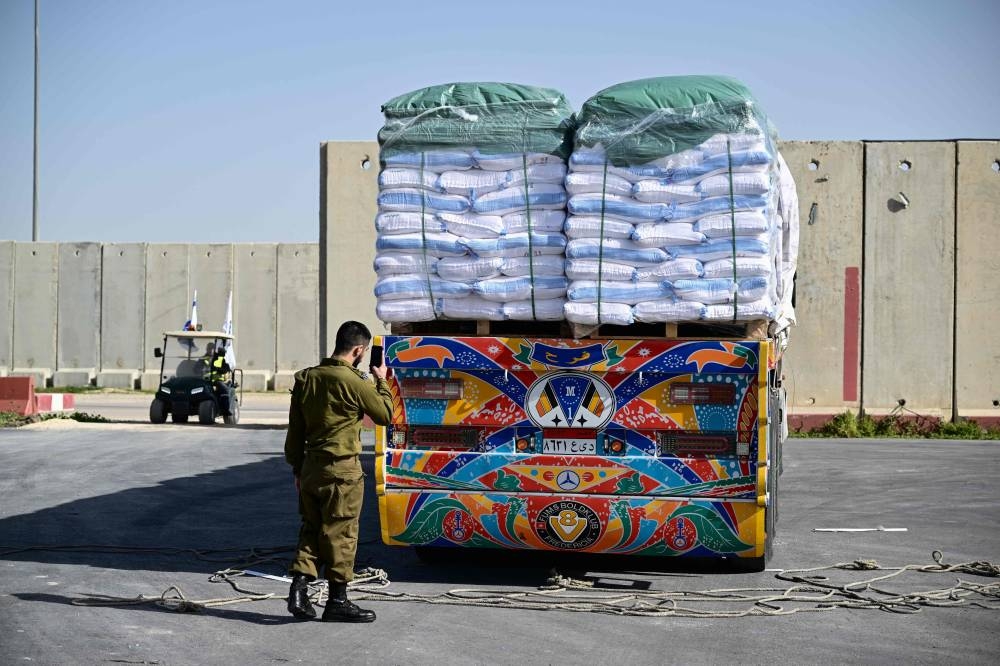
A member of Israeli security forces inspects humanitarian aid trucks arriving from Egypt on the Israeli side of the Kerem Shalom border crossing with the southern Gaza Strip on Friday. AFP
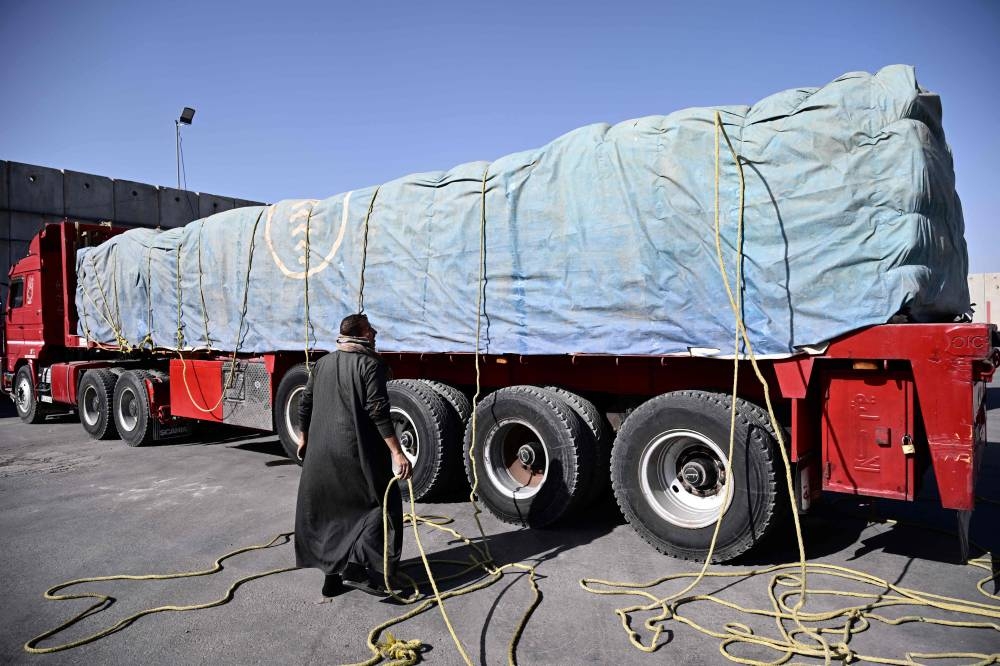
A truck driver refastens his humanitarian aid cargo after inspection by Israeli security upon arriving from Egypt on the Israeli side of the Kerem Shalom border crossing with the southern Gaza Strip Friday. AFP
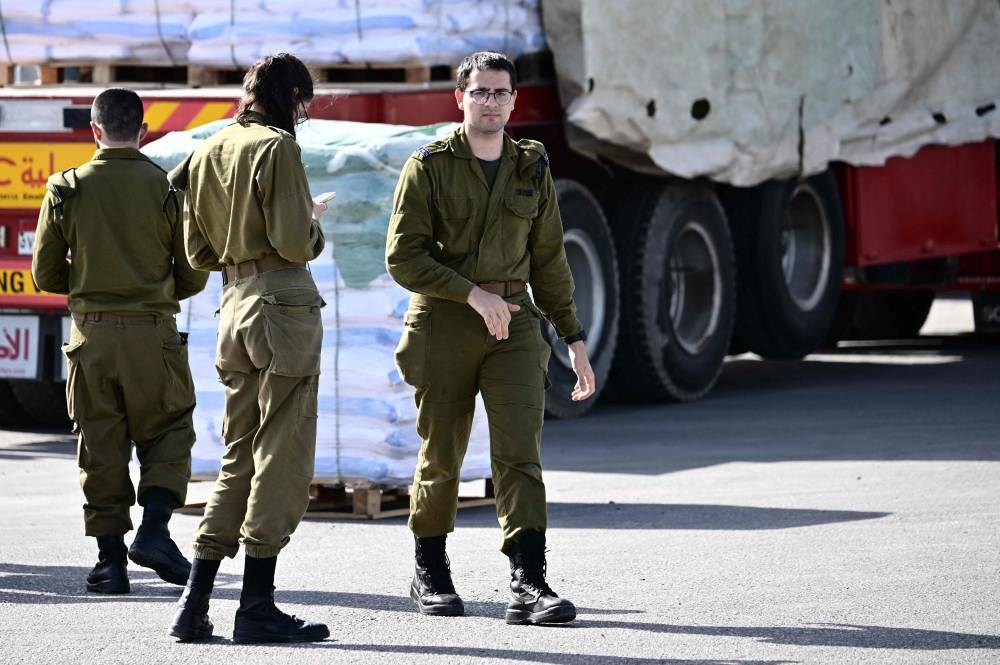
Members of Israeli security forces inspect humanitarian aid trucks arriving from Egypt on the Israeli side of the Kerem Shalom border crossing with the southern Gaza Strip, on Friday. AFP
